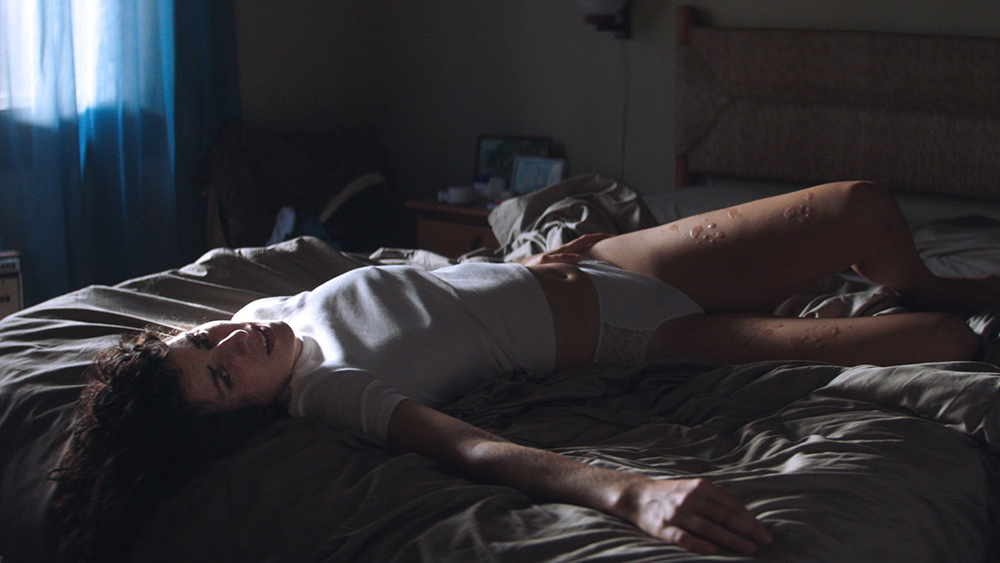
Bolstered by robust public-sector funds, a savvy new generation of filmmakers — many of them women — and world-class film schools, Catalonia has become one of Europe’s most vibrant regional audiovisual forces.
The proof can be found at this year’s Cannes Film Festival. More than 50 Catalan companies — some 100 executives and creatives — are expected to attend. Five films, four by new directors, have made the official cut at Cannes; six projects play in Marché du Film showcases.
The three biggest Catalan movies at the festival, Elena Martin’s “Creature,” Pham Thiên An’s “Inside the Yellow Cocoon Shell,” both in Directors’ Fortnight, and Pablo Berger’s “Robot Dreams,” playing out of competition, also underscore strong trends coursing through current Catalan cinema, including international co-production and an exploding animation scene.
“Co-producing is at the core of the European cinema industry and has always had more pros than cons,” says Vilaüt Films’ Ariadna Dot, a producer of Elena Martin’s “Creature,” made with regional partnerships in Spain: here Catalonia’s Lastor Media, Barcelona-based Vilaüt, Avalon in Madrid and Valencia’s Elástica Films (the producers of Berlin Golden Bear winner “Alcarràs”).
Among Vilaüt’s most recent films, however, “Alcarràs” was co-produced with Italy, “Libertad” with Belgium and “Mediterráneo” with Greece. Its next feature film, Carlos Marqués-Marcet’s “Polvo serán,” filming later this year, is with Switzerland and Italy.
“The obvious pros to co-producing would be cost-sharing and an access to wider audiences,” Dot says, adding: “Co-producing can help reduce production costs for the majority co-producer and this can result in higher-budgeted films, which usually translates into better quality films because a bigger budget usually means more time.”
As in 2022, allocated audiovisual funding at Catalan culture industry agency ICEC will be just over €41 million ($45.5 million). That compares to €12.6 million ($14 million) in 2019. ICEC launched a minority co-production fund in 2020.
“Co-producing gives one the opportunity to work with different talent, crew and working styles and while some things do get lost in translation, it is very rewarding all the same,” says Adrià Monés, CEO-producer of Barcelona-based Fasten Films, a minority co-producer on Pham Thiên An’s debut feature, “Inside the Yellow Cocoon Shell,” with Vietnam’s JK Film, Singapore’s Potocol and associate producer Deuxième Ligne Films of France.
Inside the Yellow Cocoon Shell
Courtesy of Fasten Films
Fasten has “La Gang,” a co-production with the Dominican Republic, and “Cuatro amores,” with Belgium, in development.
Being a young woman in the film industry has its own set of challenges, says Vilaüt’s Marta Cruañas, who has an MFA in creative producing from Columbia U. Working as an independent also “has been a challenge itself since, in Spain, you really need to have a production company in order to produce. That made me partner with different pro- duction companies, which was an opportunity to meet new people and observe different work ethics,” she adds.
Women direct 17 of 31 Catalan films selected this year by the Festival or Marché or receiving market screenings.
“‘Creature’ explores the relationship that a 30 -year- old woman has with her sexuality and how it has been built up over the years, within an apparently progressive family,” says Martin.
“In past years, many new directors have been women and have had a presence at international festivals, winning awards and receiving recognition,” Martín points out. She adds that this has indeed been encouraging to other aspiring female directors although there is still a lot more to be done.
“It is true that it is increasingly common to see women behind the cameras; without going any further, our last three shorts have been directed by women,” concurs Marc Guanyabens, whose company, Fractal Films, partnered with Croatia’s Antitalent on coming-of-age short “The Real Truth About the Fight,” which world premieres in Cannes’ Critics’ Week.
He cites data, however, from Dones Visuals, the Catalan Assn. of Women Cinematographers and Audiovisual Media, that reports year-on-year advances for women producers, directors and crew members achieving parity, but it’s currently hovering below 30% and not budging. Another growth area is animation, as multiple Catalan companies are moving into that sector. “Robot Dreams” is produced by Arcadia Motion Pictures, which is behind Rodrigo Sorogoyen’s “The Beasts.” Barcelona-based Mr. Miyagi Films released “Hannah and the Monsters” in late April, and has “Dalia and the Red Book” in post. It will start production later this year on “Juul,” and will pitch “The Day Ewan McGregor Introduced Me to His Parents” at Annecy in June.
Top Spanish indie distributor A Contracorriente Films is backing buddy movie “The Inseparables”; “20,000 Species of Bees” producer Inicia Films is behind “The Treasure of Barracuda,” from animator Adrià García. Alba Sotorra will present the Robert Wyatt-inspired “Rock Bottom” at Cannes’ Annecy Animation Day.
In all, five features are completed, including “Tender Metalheads,” which, like “Robot Dreams,” will play Annecy’s Contrechamp in June, while three more are in production, and five in development.
Three factors drive the growth in animation, says Mr. Miyagi Films co-founder David Matamoros: “ICEC’s commitment to support animation, both series and cinema, tax incentives and talent. If we add ICAA to this equation, the result is a handful of films, very different and distinctive, from auteur to commercial, that resonate beyond our borders.”












